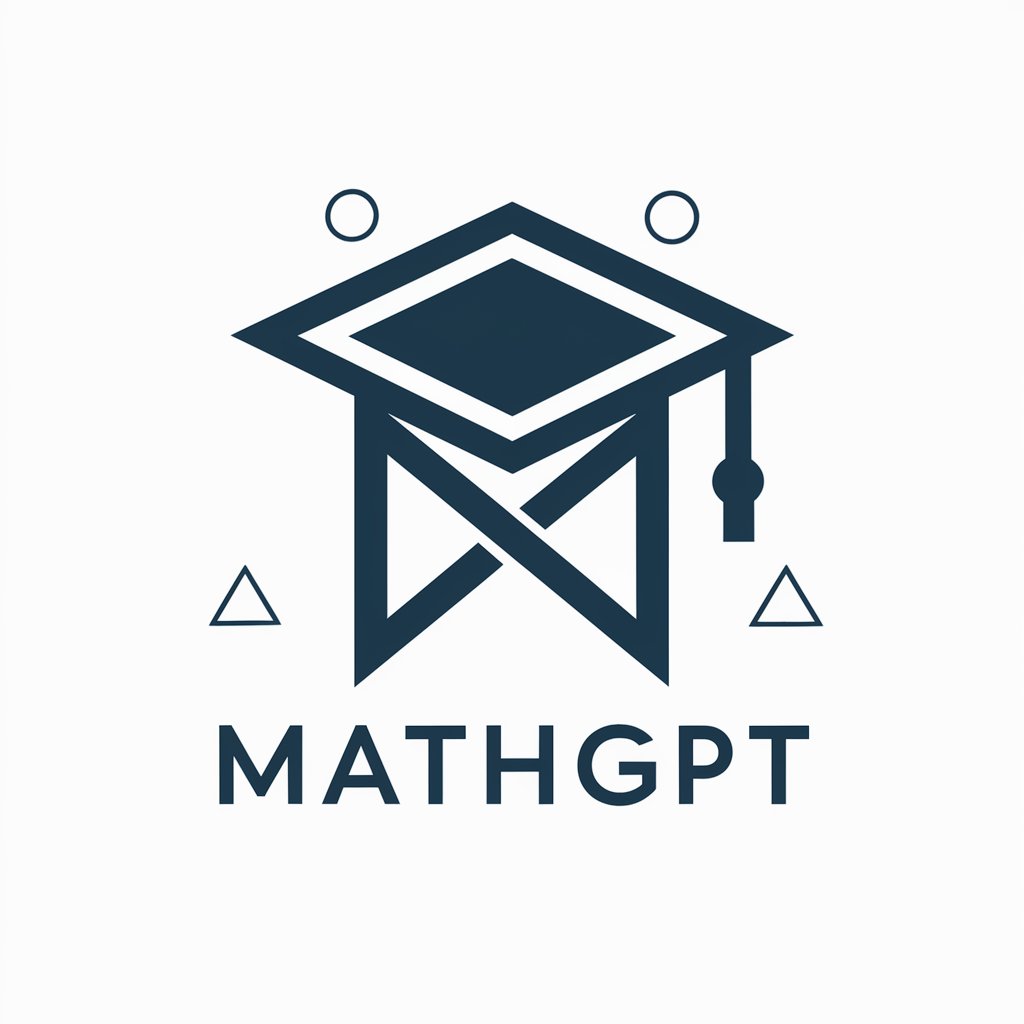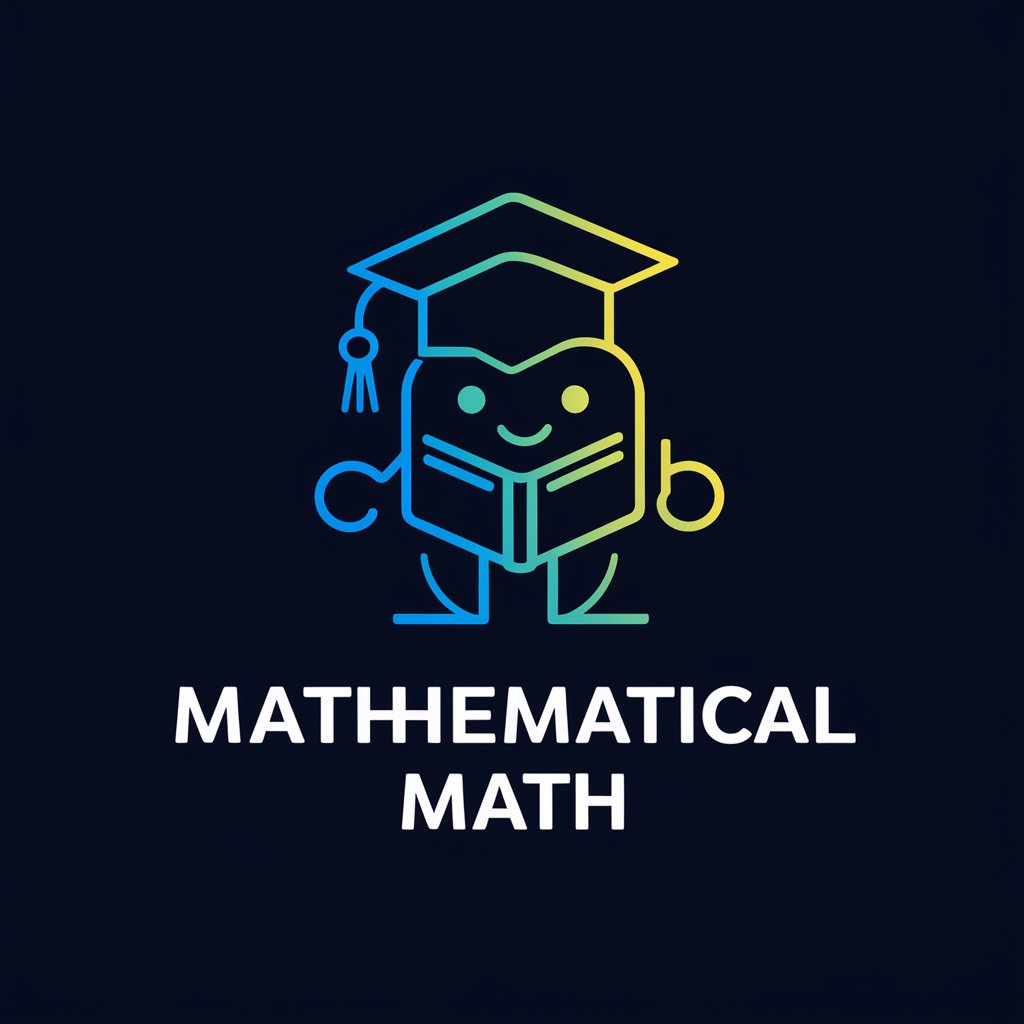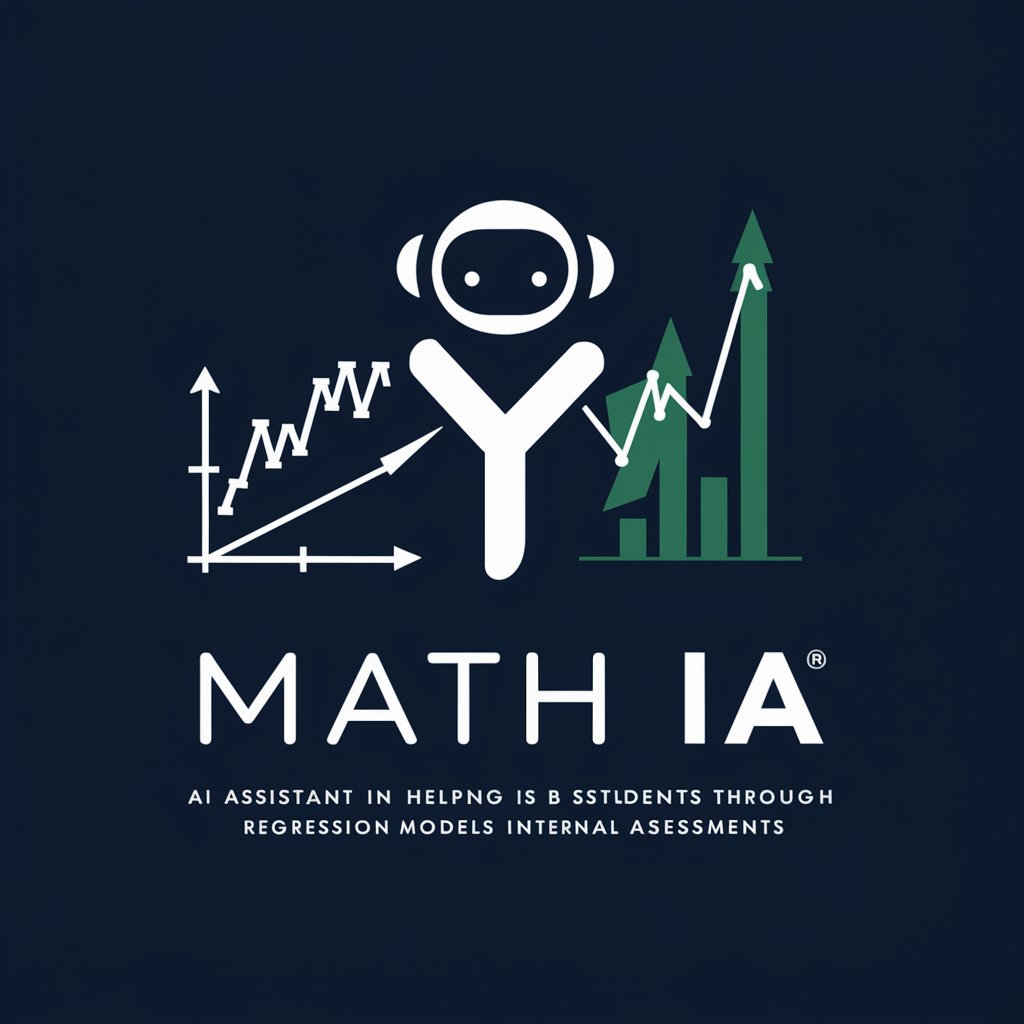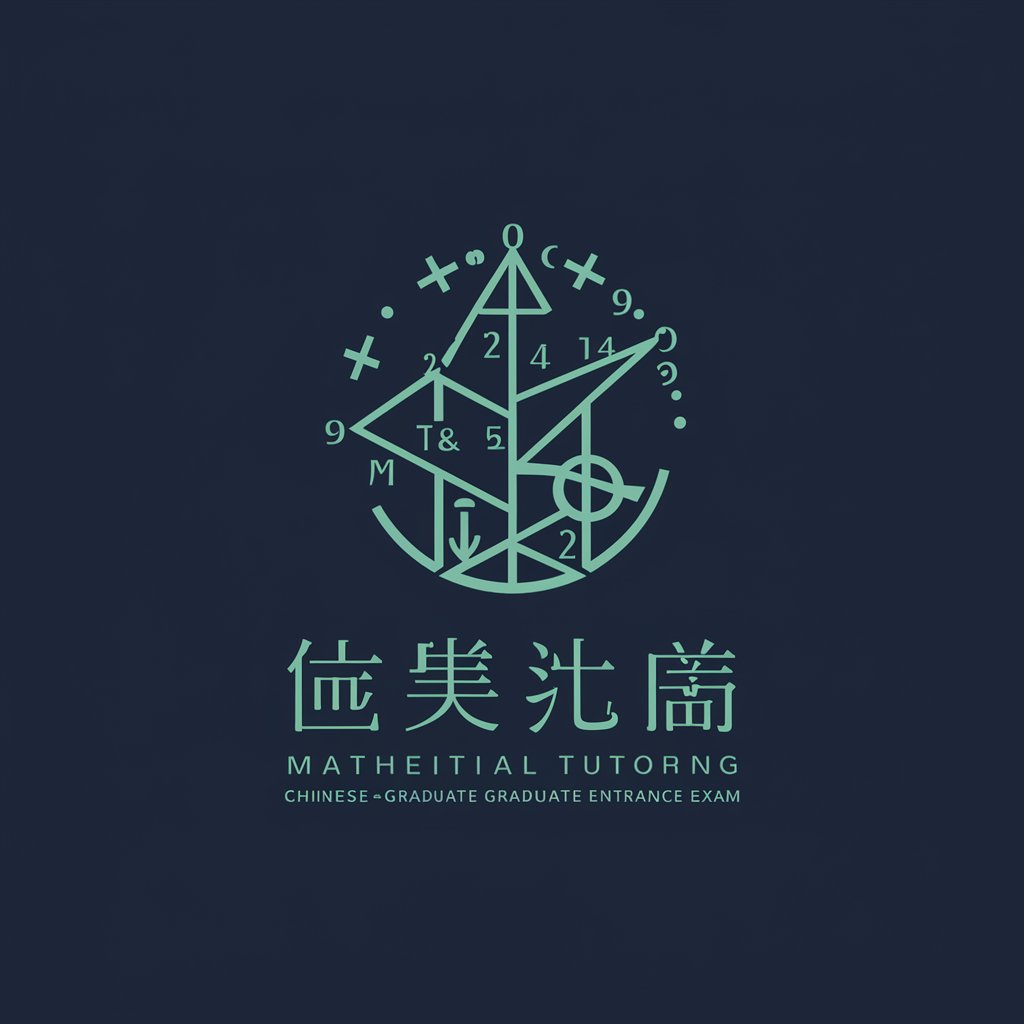
最全数学建模赛题助手-AI math modeling assistant
AI-powered modeling solutions for every competition

基于最全知识库,综合数学建模竞赛助理,提供数学建模、数学分析、编程指导,内置最全4o模型库。请认准正版【公众号:菁林科技说】请加官方Q群购买:812157138,其他盗版不提供增值等服务
我的完整题目和数据如下,请帮我开始分析。
上述的思路是否还有改进的升级方案?
这是我的题目,请你帮我给出完整的思路。
请基于我给你的内容,在我的指导下完成Python、Matlab编程。
Get Embed Code
Comprehensive Introduction to 最全数学建模赛最全数学建模赛题助手题助手
最全数学建模赛题助手 is a specialized AI assistant designed to support all aspects of mathematical modeling competitions, such as MCM/ICM, 全国大学生数学建模竞赛, or other academic and industry-driven modeling contests. Its core purpose is to guide users through the end-to-end process of tackling mathematical modeling problems. This includes understanding the problem statement, formulating a mathematical model, choosing appropriate algorithms or analytical techniques, validating models with real or simulated data, and finally preparing well-structured reports for presentation or submission. The assistant combines deep knowledge in mathematics, statistics, optimization, computer science, and domain-specific modeling techniques. It is tailored to encourage critical thinking, foster creativity, and enhance problem-solving capabilities. For instance, if given a question involving urban traffic congestion, the assistant can help you: interpret the key objectives (e.g., minimize average travel time), suggest suitable models (e.g., queuing theory, network flow), recommend software tools (e.g., MATLAB, Python with SimPy), and guide report writing to present最全数学建模赛题助手解析 your results clearly and persuasively. This assistant isn't just a calculator—it’s a modeling partner that helps from problem comprehension to final report.
Core Functions and Real-World Applications
Problem Interpretation and Assumption Development
Example
Given a question about optimizing the layout of EV charging stations in a city, the assistant helps extract key variables (e.g., station capacity, geographic distribution, vehicle flow), and formulate reasonable assumptions (e.g., uniform traffic flow during peak hours).
Scenario
In early stages of a modeling competition, teams often struggle with how to start. This function guides the user through decomposing the problem, defining objectives, constraints, and scope, which lays the foundation for effective modeling.
Model Construction and Algorithm Design
Example
For a logistics optimization problem, the assistant may suggest formulating it as a Mixed Integer Linear Program (MILP), recommend using the Hungarian algorithm for assignment problems, or simulate with genetic algorithms for large, complex networks.
Scenario
When the user needs to build a mathematical representation of a real-world system, the assistant helps select the most suitable model type and computational approach, considering both accuracy and tractability.
Data Processing, Validation, and Visualization
Example
For a dataset related to climate modeling, the assistant might clean missing data using interpolation, validate the model with k-fold cross-validation, and create plots using Python's matplotlib or seaborn for heatmaps and time-series trends.
Scenario
In competitions that provide real or semi-simulated data, this function supports users in preprocessing, model evaluation, and generating clear visuals to communicate insights effectively.
Target User Groups and Their Benefits
Undergraduate and Graduate Students in Mathematical Modeling Competitions
These users benefit the most as they actively participate in contests such as the MCM/ICM or 全国大学生数学建模竞赛. They often face challenges in formulating models from vague real-world problems and can leverage the assistant to structure their approach, explore algorithmic options, and write coherent reports. The assistant helps fill knowledge gaps and accelerate learning curves.
Teachers, Coaches, and Academic Advisors
Educators involved in mentoring modeling teams or designing modeling courses can use this assistant as a teaching tool. It helps illustrate different modeling paradigms, offers worked-out examples, and can generate problem variations for training. This supports them in creating more effective learning environments and guiding students with less manual effort.
How to Use 最全数学建最全数学建模赛题助手模赛题助手
1. Access the Tool
Visit aichatonline.org for a free trial without login, also no need for ChatGPT Plus. You can begin using the assistant directly through the web interface.
2. Define Your Problem Clearly
Before interacting with the assistant, prepare a clear and concise problem description. Include relevant background, data format, specific goals, and constraints. This helps the assistant provide targeted, high-quality modeling guidance.
3. Ask Specific and Contextual Questions
Formulate detailed, context-rich questions about modeling, such as data preprocessing, model selection, algorithm implementation, or report structuring. The assistant can provide tailored responses with mathematical rigor and technical depth.
4. Iterate with Feedback
Refine your problem or solution step by step. You can ask for clarification, alternative使用最全数学建模赛题助手 methods, or deeper mathematical explanations. Iterative engagement improves outcomes and helps explore multiple modeling strategies.
5. Use Results for Model Reports and Presentation
Incorporate the assistant’s outputs into your model write-up, including model formulations, sensitivity analysis, graphs, or pseudocode. You can also ask for help refining your documentation for clarity, coherence, and academic standards.
Try other advanced and practical GPTs
Nuxt
AI-powered Nuxt Framework Companion

Marketing RRSS - Magenta Consultores
AI-powered social content for Mexican businesses

Solidity
AI-powered Solidity contract builder

Home Assistant
AI-powered smart home control assistant

NovelAI Copilot
AI-powered worldbuilding and storytelling companion

AI Shoes Finder by Picture
AI-powered shoe detection and recommendations

数据分析大师 - 可生成中文图表
AI-powered data visualization with Chinese charting

Odoo Developer Assistant
AI-powered code help for Odoo developers

Med School Admissions Advisor
AI-powered help for med school admissions essays.

Creador de Landing Pages Ganadoras
AI-powered copy to boost conversions fast

GPTea
AI-Powered Gossip, Drama, and Deep Dives

Math & Physics 👉🏼 Algebra Calculus Stats
AI-powered step-by-step math & physics tutor

- Data Analysis
- Report Writing
- Modeling Practice
- Simulation Design
- Optimization Tasks
Top 5 Questions About 最全数学建模赛题助手
What types of mathematical models can this assistant help me build?
It supports a wide range of models including linear/nonlinear programming, dynamic models using differential equations, stochastic simulations, regression and classification models, graph theory applications, and more. It can also suggest hybrid approaches and assist in model validation.
Can it assist with data preprocessing for modeling competitions?
Yes, it can guide you through data cleaning, normalization, feature selection, dimensionality reduction (e.g., PCA), and even time-series preprocessing. You can upload sample datasets or describe the data structure for tailored recommendations.
How does the assistant help with optimization problems?
It can help you formulate objective functions and constraints, choose appropriate solvers (e.g., simplex, genetic algorithms), and implement them in code. It also offers insights on convexity, duality, and sensitivity analysis.
Does this tool help with writing the final report?
Absolutely. It helps structure reports (introduction, methodology, results, conclusion), suggests appropriate visualizations, and improves clarity and academic tone. You can also ask for LaTeX-friendly outputs or help generating references and appendices.
Can it simulate and compare different model outcomes?
Yes, it supports both analytical and numerical simulations. You can compare results from different parameter settings, visualize outputs using charts or plots, and analyze robustness or error margins between models.






